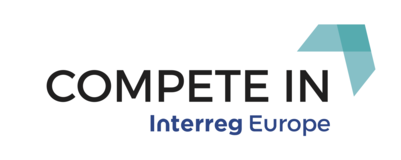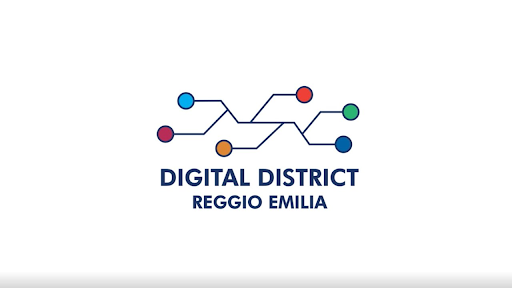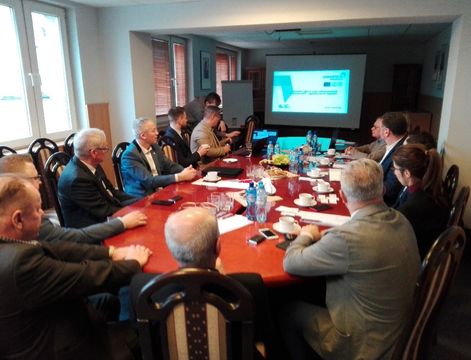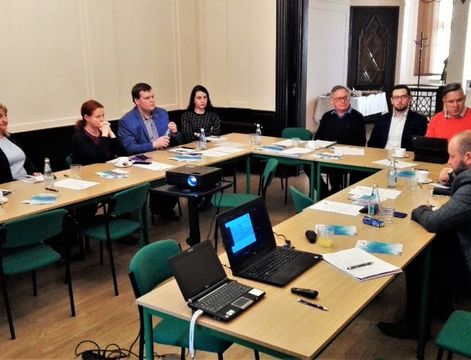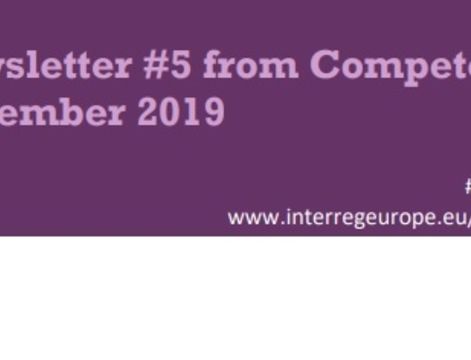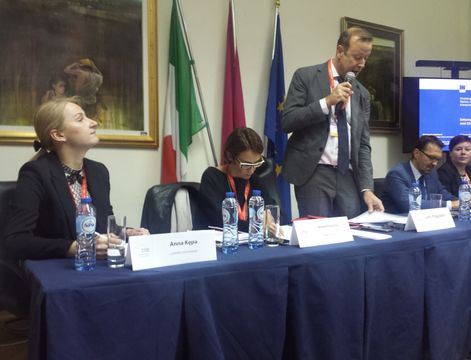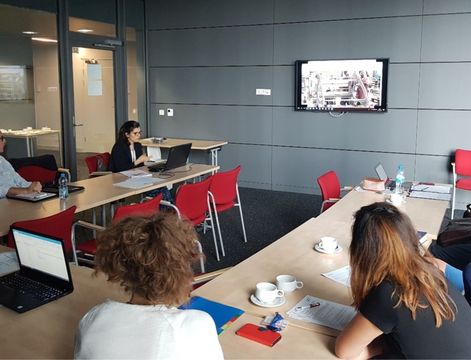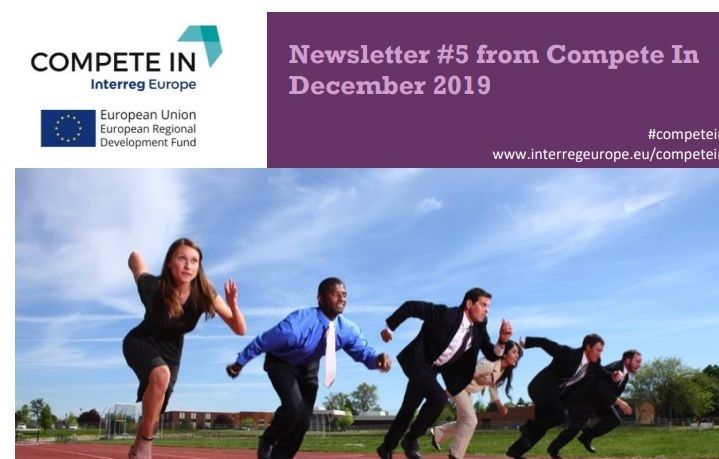During the workshop experts from Spain briefly presented their institutions, generally introduced to implemented programmes, shew examples of beneficiaries, discussed problematic issues and answered on questions of other participants.
The workshop tackled Spanish instruments reflecting Wielkopolska’s ERDF Regional Operational Programme 2014-2020, Priority axis 1: Innovative and competitive economy; Objective 1.4: Internationalization of regional economy. The workshop focussed on good practices from Spain: programmes XPANDE and SICOMEX, which were discussed by foreign experts: Maria de Los Angeles Montesinos Bonet from Cámara Valencia and Thais Rodríguez Pérez from ARVET. Participants of the workshop actively took part in the event through preparing issues to be discussed by the experts (developed during Local Stakeholders Group meeting) and asking questions during TW.
Both programmes were presented on examples of beneficiaries, so participants of the workshop could learn of ‘life stories’ of specific companies, interested in foreign expansion, which were involved in the programmes.
Apart from professional PowerPoint presentations TW participants could watch promotional movies produced in the framework of the programmes, were acquainted with applications forms, online platforms and other documentation of the programmes. Provided Spanish to Polish translation enabled to tackle the issues on a very detailed level.
The most important conclusions of are following:
· any support programme for internalization of SMEs should be very complex – include various stages of foreign involvement of enterprise: from an idea of ‘going outside’ to the beginnings of activities on a foreign market;
· programmes should be at least co-organised by local business environment institutions (like LSG members) as they have an experience and a network of contacts;
· programmes should be co-financed by the participants (an example of SICOMEX GP shows that it is even possible to run successful programme without any support of European or local funds – 100% financed by the entrepreneurs);
· SMEs representing same sector of local economy may cooperate on foreign markets as their offers more often complement each other than they compete with each other;
· due to limited funds for support programmes foreign markets for the expansion of local companies should be chosen first of all on a basis economical, historical and cultural ties.
Some elements of presented GPs and TW conclusions can be included in the recommendation concerning support instruments within Wielkopolska’s ERDF Regional Operational Programme for the future programming period.
